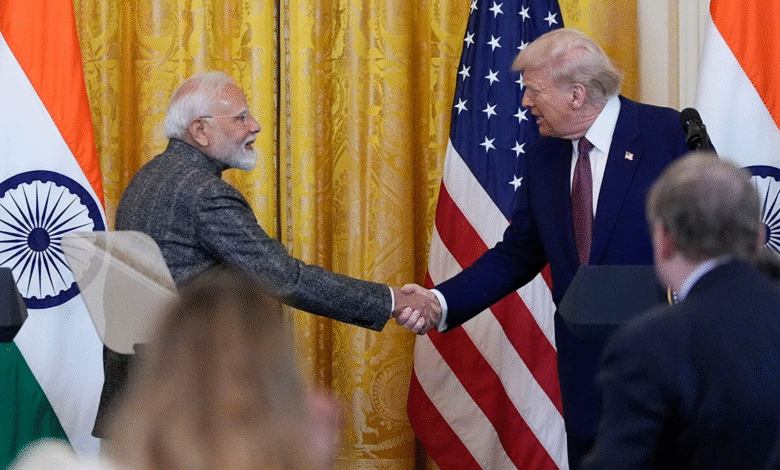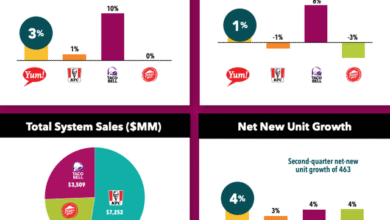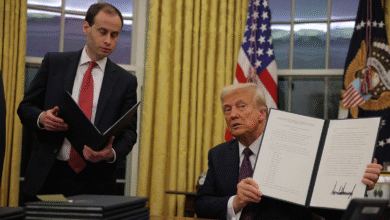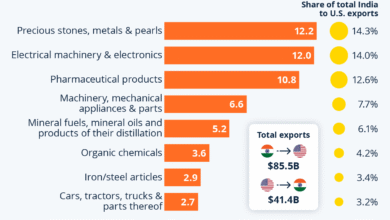Trump Modi Conflict: U.S. Role in Pakistan Ceasefire Disputed

The Trump Modi conflict has surfaced prominently on the global stage, as recent tensions between India and Pakistan have been exacerbated by differing narratives regarding U.S. involvement in mediating a ceasefire. During a phone call between Indian Prime Minister Narendra Modi and U.S. President Donald Trump, Modi firmly rejected Trump’s repeated claims of American mediation efforts, emphasizing that India maintains a clear stance against any external involvement in its affairs. This conversation, the first since the May military flare-up, highlighted the deep-seated frustrations stemming from conflicting perceptions of U.S. influence in South Asian geopolitics. As both leaders prepare to meet at the upcoming G7 summit in 2025, the implications of their dialogue resonate far beyond bilateral relations, affecting regional stability and U.S. foreign policy in a time of increased India Pakistan tensions. With the stakes high, it remains to be seen how both countries will navigate their complex dynamics amid the backdrop of ongoing discussions surrounding U.S. mediation in the Pakistan India conflict.
The recent discord between Donald Trump and Narendra Modi revolves around the intricacies of U.S. involvement in the simmering disputes between India and Pakistan. Prime Minister Modi’s explicit dismissal of Trump’s assertions regarding American facilitation in the ceasefire underlines a significant rift in their diplomatic exchanges. Both leaders seem to find themselves at a crossroads, where their distinctions in narrative could hinder future collaboration and peace initiatives. As the international community closely monitors this relationship, the balancing act at play will significantly impact not just regional security but broader geopolitical strategies, especially concerning U.S. mediation stances in South Asia. Ultimately, understanding the evolving landscape of India-Pakistan relations during critical moments—such as the upcoming events at the G7 summit—will be vital for anticipating further developments.
The Trump-Modi Conflict: Tensions Over U.S. Mediation in South Asia
The recent phone call between Indian Prime Minister Narendra Modi and U.S. President Donald Trump underscores the rising tensions surrounding U.S. involvement in the India-Pakistan situation. Modi firmly reiterated that India rejects any form of U.S. mediation regarding their conflicts, a stance that showcases the deep-rooted national consensus in India. The conversation marked an important moment in diplomatic relations as Modi expressed his frustrations over Trump’s claims of playing a key role in lowering the tensions post-conflict. This discord not only highlights the complexities of U.S.-India relations but also signals potential shifts in the geopolitical landscape as both leaders navigate their paths amid increasing regional tensions.
Furthermore, Trump’s assertions that he halted the hostilities between India and Pakistan may play into his broader narrative of foreign policy success, yet they have drawn sharp rebuttals from the Indian side. Modi’s refusal to acknowledge any mediation hints at India’s desire for bilateral discussions without external interference. This controversy is crucial as it reflects on the ongoing India-Pakistan tensions, particularly given the backdrop of recent military conflicts in Kashmir, which only serves to heighten the stakes in U.S. diplomatic engagement in South Asia.
Impact of Environment on India-Pakistan Relations: A Historical Perspective
To fully understand the current diplomatic rift between the U.S., India, and Pakistan, it’s essential to look at the historical context of their relations. The longstanding tensions between India and Pakistan have often been exacerbated by territorial disputes, particularly over Kashmir. The reference to a ceasefire, as claimed by Trump, is complexly intertwined with decades of conflict, where each event builds on historical grievances. This complex backdrop has been impacted by shifting global attitudes towards mediation in conflicts, especially by a superpower like the U.S., prompting stark reactions from India, who values its sovereignty in approach to dialogue with Pakistan.
As this context unfolds, Modi’s hardline positioning could be interpreted in light of India’s national security strategy, which prioritizes direct negotiations devoid of outside influence. The legacy of previous U.S. involvement in South Asia adds layers of skepticism towards perceived interference. Moreover, while the U.S. has often been viewed as an ally to India, such claims by Trump may be seen as counterproductive, risking not only bilateral ties but also the regional stability that has been precarious for these two nuclear neighbors.
Rising Geopolitical Concerns: The Role of the G7 Summit 2025
The G7 summit in 2025 is poised to play a critical role in shaping discussions around international conflicts, particularly the India-Pakistan situation. As world leaders gather to discuss pressing global issues, including trade and defense strategies, the dynamics between Modi and Trump will be crucial in setting the tone for their respective countries’ cooperation. Both leaders’ aspirations for bilateral trade agreements, juxtaposed against their differing views on U.S. mediation in South Asia, could impact the effectiveness of the summit’s outcomes. If the topic of Pakistan and India emerges on the agenda, it could lead to greater scrutiny of U.S. involvement in the region and its long-term goals.
Moreover, the G7 summit will allow regional allies and stakeholders to weigh in on the India-Pakistan discourse, emphasizing the necessity for delicate diplomacy in an environment fraught with historical animosities. With Trump departing the summit early due to tensions in the Middle East, it signals the unpredictable nature of international relations and the potential for another major geopolitical shift in discourse during the gathering. The summit’s proceedings and resolutions could very well reflect the broader sentiment towards mediating roles, reinforcing India’s firm stance on maintaining sovereignty over conflict negotiations.
Bilateral Relations: The Importance of Dialogue After Conflict
The recent tensions following the May military conflict between India and Pakistan underline the essential need for ongoing dialogue between the two nations. Modi’s direct communication with Trump reflects India’s commitment to engaging in conversations that prioritize sovereignty, as opposed to intercession. Historical patterns indicate that lasting peace stems from sustained discussions rather than external mediation. Consequently, establishing a framework for direct dialogue, where both parties can articulate their concerns without outside interference, could yield more favorable outcomes and foster trust among the nations.
In light of the recent conflicts, it becomes evident that both nations must find common ground to reduce hostilities. The situation calls for innovative diplomatic approaches, focusing on creating a communication channel that promotes understanding. As long as tensions remain high and allegations of U.S. influence persist, the potential for future conflicts looms large. Strengthening bilateral dialogue, similar to strategies utilized post-1947, may pave the way towards a more secure and stable interaction between the neighboring countries, enabling them to navigate their differences effectively.
Domestic Reactions to the Trump-Modi Dialogue
The domestic reception of the Trump-Modi phone call reveals deep-seated sentiments on sovereignty and foreign involvement in India’s political landscape. Modi’s refusal to accept U.S. mediation reflects not only a strategic stance but also resonates with the Indian populace’s perspective on significant decisions regarding national security. With a majority of Indians wary of external interference, the Prime Minister’s approach strengthens his political standing domestically, aligning with the national narrative that champions self-determination over reliance on foreign powers.
Moreover, the reaction to Trump’s comments escalated discussions within India regarding their foreign policy direction. The framing of U.S. involvement can sway public opinion, influencing policy makers and engaging the electorate around conversations of strength and independence in foreign relations. Thus, Trump’s assertions serve as a catalyst for deeper introspection within India about how they choose to engage with both the U.S. and Pakistan, highlighting the essential balance required to maintain power dynamics in the current global era.
Potential Trade Deals: Key Issues in U.S.-India Relations
In the backdrop of tense diplomatic exchanges, discussions surrounding potential trade deals between the U.S. and India are simultaneously heating up. Trump’s claims of progress towards a trade agreement have created anticipation in the Indian economic sector, yet this is tempered by the overarching concerns from Modi regarding U.S. involvement in the Kashmir dispute. Economic cooperation requires a stable diplomatic foundation, and the existing tensions make such progress tenuous. The relationship between trade policy and diplomatic actions cannot be overstated, as unresolved political issues may hinder economic initiatives.
Moreover, moving forward with trade negotiations necessitates a careful balance—a fact well acknowledged by both leaders. India’s critical market positions amidst rising global economic challenges imply that striking a bilateral trade deal is paramount for both nations. However, Modi’s firmness on rejecting mediation and managing tensions with Pakistan shows he remains cognizant of how international relations impact economic strategies. As such, addressing these sensitive topics will be crucial as both nations explore the intricacies of trade while navigating their political landscapes.
Regional Stability: The Role of International Diplomacy
The ongoing conflict between India and Pakistan serves as a reminder of the fragility of regional stability in South Asia, which is often influenced by external diplomatic efforts. The role of international diplomacy is crucial in facilitating de-escalation initiatives, especially given the nuclear capabilities of both nations. The recent U.S. claims of having contributed to the ceasefire only complicate the matter further, as it raises questions about the credibility of external involvement. Realizing genuine stability requires repositioning international actors to act as facilitators of dialogue rather than mediators.
Addressing these regional tensions comprehensively involves establishing collaborative frameworks that prioritize diplomatic engagement. Countries like the U.S. have a stake in ensuring that South Asia remains stable due to broader geopolitical interests. By focusing on constructive dialogue and allowing India and Pakistan to pursue bilateral negotiations, international partners can help alleviate tensions while respecting the complexities of national sentiments. Ultimately, fostering a collaborative and peaceful regional environment necessitates a commitment from global players to facilitate dialogue, ensuring that conflict resolution initiatives align with regional aspirations.
The Importance of Mediation in Global Conflicts
Mediation plays a pivotal role in resolving global conflicts, yet the effectiveness largely depends on the involvement of the parties at odds. In the case of India and Pakistan, Modi’s explicit rejection of U.S. mediation points to the complexities inherent in such diplomatic engagements. The history of external mediation has often led to further complications, making it imperative for nations to preserve their agency in conflict resolution. Each conflict tells a different story, and the dynamics in South Asia serve as a distinct case where perceived interference may breed mistrust.
Understanding the necessity for mediation starts with acknowledging that, while it can provide essential channels for peace, it must be carried out with sensitivity to the involved nations’ perspectives. The goal is to create an avenue where discussion can occur freely, devoid of pressures that could distort the narrative. By allowing India and Pakistan to take the lead in their negotiations, the U.S. and other global players can contribute to fostering genuine peace without imposing external solutions that may temporarily appease but ultimately fail to address underlying issues.
The Future of U.S.-India Relations Amid Conflicts
The future of U.S.-India relations remains uncertain as both countries grapple with their respective national interests in light of ongoing conflicts. The need for a stable bilateral relationship is critical as both nations navigate through economic opportunities while addressing geopolitical crises. Modi’s assertive stance against any external mediation reflects India’s commitment to controlling its narrative, a move that the U.S. must recognize if it seeks to maintain its strategic partnership. Engaging positively in trade discussions and diplomatic efforts while respecting India’s position becomes essential in fostering future relations.
However, as both nations head towards potential meetings in international arenas like the G7 summit, lingering doubts about conflict resolution mechanisms and mediation roles will continue to shape their engagements. Resolving these tensions will require a delicate approach, one that respects both countries’ sovereignty while acknowledging the complex dynamics involved. Predictions for the future suggest that initial engagements will be crucial in determining whether India feels supported in its position against U.S. involvement or whether apprehensions lead to further distancing between the two powers.
Frequently Asked Questions
What triggered the Trump Modi conflict regarding U.S. mediation in the Pakistan India situation?
The Trump Modi conflict was triggered by a recent phone call in which Indian Prime Minister Narendra Modi expressed frustration over U.S. President Donald Trump’s claims of having a significant role in mediating a ceasefire between India and Pakistan. Modi firmly stated that India does not accept U.S. mediation in its disputes with Pakistan.
How did the Modi Trump phone call address the India Pakistan tensions?
During the Modi Trump phone call, Modi clearly articulated that the U.S. had not played a role in easing the existing India Pakistan tensions. This marked the first conversation since a military conflict in May, which heightened concerns between the two nuclear-armed nations.
What was President Trump’s claim regarding the U.S. involvement in the Pakistan ceasefire?
President Trump claimed that he had significantly stopped the war between Pakistan and India, emphasizing his role in facilitating the ceasefire after the recent conflict. This assertion was met with strong rebuttal from Modi, highlighting a clear discord in their views on U.S. mediation.
What were the implications of the Trump Modi conflict for U.S.-India relations?
The Trump Modi conflict over the perception of U.S. mediation in Pakistan India tensions could strain U.S.-India relations by emphasizing India’s strong stance against foreign intervention, which is rooted in political consensus within India.
Did Trump and Modi discuss a potential trade deal during their call?
No, during the Modi Trump phone call, Modi conveyed that there were no discussions about a potential trade deal, focusing instead on the issue of U.S. mediation in the escalating tensions between India and Pakistan.
How did the situation at the G7 summit affect the Trump Modi relationship?
The Trump Modi relationship was notably affected at the G7 summit when Trump departed early, potentially due to rising tensions in the Middle East, leaving limited opportunity for direct dialogue and negotiation amidst the ongoing conflict between Pakistan and India.
What did Modi emphasize about India’s position on U.S. mediation during the phone call with Trump?
Modi emphasized that India does not and will not accept any mediation from the U.S. regarding the conflicts with Pakistan, reiterating a strong and unified political stance within India on this matter.
| Key Point | Details |
|---|---|
| Phone Call | Modi’s first conversation with Trump since May’s conflict highlighted India’s stance on U.S. mediation. |
| Modi’s Frustration | Modi expressed frustration over Trump’s claims of U.S. mediation in the conflict, stressing India’s position against it. |
| Clear Message | Modi conveyed that the U.S. was not involved in mediation or discussions of a trade deal. |
| Conflict Background | The conversation followed a serious military conflict in May triggered by a terrorist attack in Kashmir, leading to escalated tensions. |
| Trump’s Claims | Trump continues to assert that he played a critical role in de-escalating the tensions between India and Pakistan. |
| India’s Response | India maintains a firm political consensus against mediation and emphasizes self-reliance in handling conflicts. |
| Global Context | The U.S. conflict mediation efforts are compared to situations like the Israel-Iran tensions. |
Summary
The Trump Modi conflict remains a significant topic in international relations, particularly regarding the U.S. role in South Asian diplomacy. Recently, Prime Minister Modi reiterated India’s strong stance against any external mediation in its disputes with Pakistan, effectively dismissing President Trump’s claims of significant U.S. involvement in brokering peace. This ongoing friction underscores the complexities inherent in geopolitical negotiations and the differing narratives pushed by leaders on the international stage.




